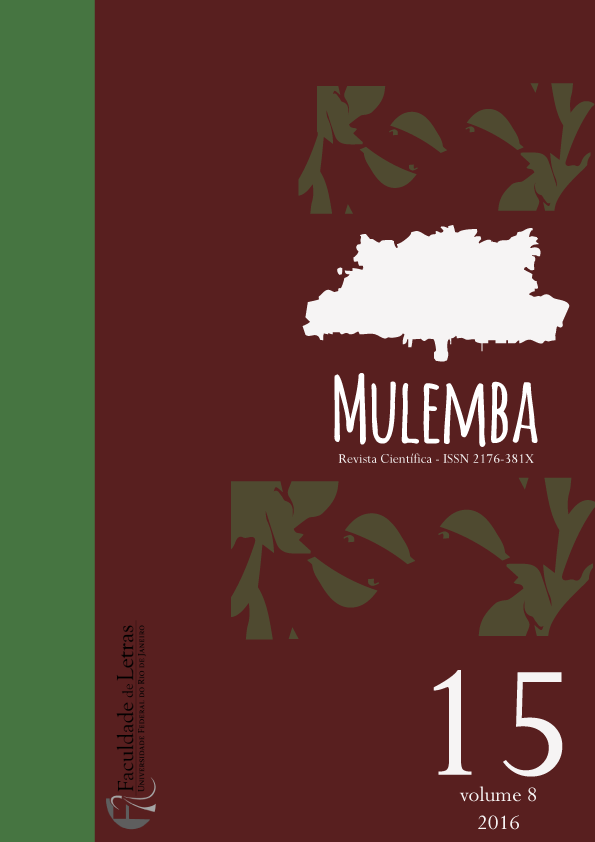The plots and lines from the oral textuality in <i>Niketche -- uma história de poligamia</i>
DOI:
https://doi.org/10.35520/mulemba.2016.v8n15a5336Keywords:
Mozambican literature, oral tradition, woman, empowermentAbstract
The aim of this article is to introduce a study about the strong presence of the orality in Niketche: a history of polygamy (2002), Mozambican novel from Paulina Chiziane. We will also reflect about the way as this orality pervades the stories of the female characters in this novel. This stories are linked to the mold of a patriarchal society whose values are questioned through the integration of beliefs, songs and spells involving diverse culture of these women. These elements are presented in the novel as allied of these whomen, whom, through the multiple voices expressed by the literary writing, represent their reaction and empowerment, especially the act of search of autonomy and significance as a historical subject. Some of bibliographic support that helped us in this article were: Leite (1998 ), Chabal (1994), Candido (2002), Bhabha (2007), Walter (2003) among others.
Downloads
Downloads
Published
Issue
Section
License
Authors who publish with this journal agree to the following terms:
- Authors retain copyright and grant the journal right of first publication with the work simultaneously licensed under a Creative Commons Attribution License that allows others to share the work with an acknowledgement of the work's authorship and initial publication in this journal.
- Authors are able to enter into separate, additional contractual arrangements for the non-exclusive distribution of the journal's published version of the work (e.g., post it to an institutional repository or publish it in a book), with an acknowledgement of its initial publication in this journal.
- Authors are permitted and encouraged to post their work online (e.g., in institutional repositories or on their website) prior to and during the submission process, as it can lead to productive exchanges, as well as earlier and greater citation of published work (See The Effect of Open Access).

